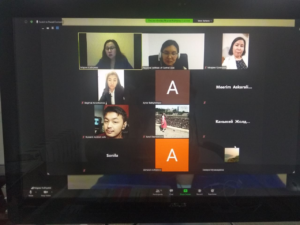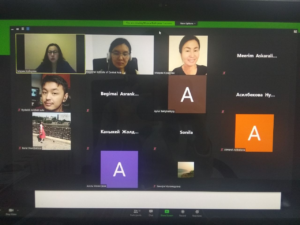Kyrgyzstan 5 years in the Eurasian Economic Union (EAEU)
2020 - November
Topic: Kyrgyzstan 5 years in the EAEU
Expert: Merim Koichueva, Doctor of Science in Economics, Professor. Economics department of the National Academy of Science of the Kyrgyz Republic.
 In this paper, results of the quantitative analysis of integration of the Kyrgyz Republic into the Eurasian Economic Union (EAEU) were presented. Analysis of macroeconomic indicators of EAEU member states is based on statistics from the World Bank, Eurasian Economic Commission, National Statistical Committee Kyrgyz Republic, National Bank of Kyrgyzstan. A comparative conclusions on the situation and role of Kyrgyzstan in this integration association and recommendations for more wider integration were provided.
In this paper, results of the quantitative analysis of integration of the Kyrgyz Republic into the Eurasian Economic Union (EAEU) were presented. Analysis of macroeconomic indicators of EAEU member states is based on statistics from the World Bank, Eurasian Economic Commission, National Statistical Committee Kyrgyz Republic, National Bank of Kyrgyzstan. A comparative conclusions on the situation and role of Kyrgyzstan in this integration association and recommendations for more wider integration were provided.
The issue of Kyrgyzstan joining the Customs Union and the EAEU in 2015, which included Russia, Belarus, Kazakhstan and, at that time, Armenia already entered, was a foregone conclusion. It was clear that integrating with these associations, Kyrgyzstan would face many problems in the short term, and there was no definite answer what would be the positive effect in the long term for our country.

Nevertheless, Kyrgyzstan and its “neighbors” need deep and wide economic integration, where there would be no economic “borders” between the countries – barriers, but everything would be open, and free movement of resources, goods, capital, and labor would be ensured.
Recommendations:
1. Economic legal laws, regulations and “rules of the game” should be the same or very approximate, consistent, identified and not contradicting each other;
2. Uniform or approximate prices for goods and services, tariffs for transportation must be consistent;
3. On the basis of a general approach, the determination of the levels of wages, its minimum level and the levels of the minimum consumer budget should be gradually solved;
4. A common position in relation to the external to the market should be developed.
This event was sponsored by The Nippon Foundation (TNF) and Japan Central Asia Friendship Association (JACAFA)







